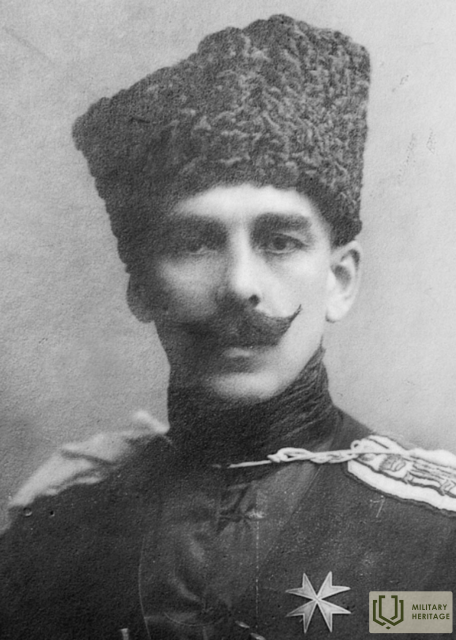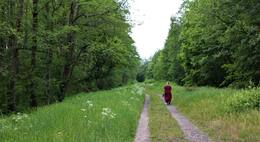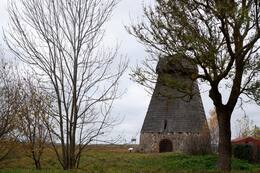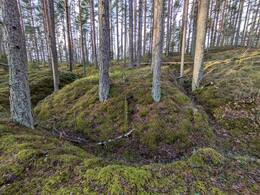Pavelas Bermondtas-Avalovas
I WW1, I Nepriklausomybės karai
Provokiškos Vakarų savanorių armijos vadas ir viena iš suformuotų karių. 1919 m. rudenį dalyvavo nesėkmingame kare prieš Latvijos, Lietuvos ir Estijos kariuomenę vadinamojoje Bermontiadoje.
1919 m. rugpjūčio 26 d. Bermontas Rygoje dalyvavo Latvijos, Lietuvos, Estijos, Lenkijos, antibolševikinio Šiaurės Vakarų fronto ir Antantės atstovų susitikime, kuriame buvo siekta koordinuoti karinius veiksmus prieš bolševikinę Rusiją.
1919 m. rugsėjo 5 d. jis pasiskelbė Vakarų Rusijos savanorių armijos vyriausiuoju vadu ir atsisakė prisijungti prie Judeničiaus puolimo Petrograde, nes manė (arba buvo priverstas tuo tikėti dėl Vokietijos finansinių sąlygų), kad būtina išlaikyti Rusijos kariuomenės buvimą Baltijos šalyse.
Latvijos Respublikos ginkluota kova su Vakarų savanorių armija (RBA) 1919 10 08-12 03 Latvijos nepriklausomybės karo (1918-1920) rėmuose. Vakarų savanorių kariuomenė buvo sumušta ir gruodžio mėnesį paliko Latvijos teritoriją, kartu su P. Bermontu evakuota į Vokietiją.
Pralaimėjus Vakarų Rusijos kariuomenei, emigravo į Vokietiją, kur įsitraukė į Rusijos nacionalsocialistų judėjimą, buvo vienas iš Rusijos nacionalsocialistų organizacijos vadovų, kartu su vokiečių naciais dalyvavo represijose prieš Vokietijos komunistus.
Daugiau informacijos šaltinių
Bermontiada – nacionalinė enciklopedija (enciklopedija.lv)
Pavelas Bermontas – Nacionalinė enciklopedija (enciklopedija.lv)
Bermonto festivalis plačiai atsispindi Latvijos mene, literatūroje ir kine. Žymiausi kūriniai: romanas „Sielų pūga“ (Aleksandrs Grīns, 1934), eilėraštis „Ant Daugavmalos“ (Uldis Bērziņš, 1999) ir kiti; paveikslai „Iš Bermonto laikų“ (Jānis Roberts Tilbergs, 1923), „Bermonto puolimas Rygoje 1919 m. dėl Libeko tilto“ (Fricis Zandbergs, 1939), „Bermonto išvarymas iš Pārdaugavos“ (Jānis Lauva, 1936), piešinių ciklas „2BerSmontāunds,19“; vaidybiniai filmai „Lāčplēsis“ (režisierius Aleksandrs Rusteiķis, 1930), „Rīgas sargi“ (rež. Aigars Grauba, 2007), dokumentinis filmas „Bermontiāda“ (rež. Askolds Saulītis, 2009) ir kt.
Susijusios vietos
Freedom Trail (Karosta route)
A well-maintained, 9 km long walking trail created to commemorate the bravery and heroism of Latvian men during the Latvian Freedom Struggle in 1919.
The trail starts in Redana and runs through the forest area of Karosta, along the seashore and the Cietokšņa Canal, including a visit to the Tsarist-era fortifications and Soviet-era military heritage. The trail features 5 information boards, which introduce the creation of the Karosta and the fortification system that encircles the entire city, the 1919 Battle of Freedom in Liepāja, the military structures built in later years and life in the Karosta during the Soviet era.
On 18 November 1918, the independent Republic of Latvia was proclaimed, but several foreign troops were still stationed on the territory of the newly established Latvian state.
The Battle of Liepaja in November 1919 played an important role in Latvia's regaining its freedom, when, thanks to the heroism of the soldiers, the enemy was outnumbered almost 5 times. After the decisive battles in Liepaja, Bermont was driven out of Latvia
Radviliškio vėjo malūnas
Aštuoniakampio formos 4 aukštų medinis malūnas stovi šalia Radviliškio miesto pakraštyje, esančiame Vaidulių kaime.
Radviliškio vėjo malūnas buvo pastatytas XIX a. pabaigoje, 1984-1985 m. – restauruotas. Pasakojama, kad 1919 m. lapkričio 22 d. prie malūno įvyko garsusis Lietuvos savanorių kariuomenės mūšis su bermontininkais – provokiškos orientacijos rusų kariniu daliniu. Bermontininkams užėmus Radviliškį – svarbų geležinkelio mazgą, buvo iškilęs pavojus Lietuvos nepriklausomybei. Atkovoti Radviliškį patikėta 2-ajam Algirdo pulkui, vadovaujamam pulkininko leitenanto V. Grigaliūno-Glovackio.
Mūšyje žuvo apie 30 Lietuvos karių, tačiau kautynės baigėsi lietuvių pergale. Pasak kautynėse dalyvavusių savanorių, pulti bermontininkų užimto malūno išėjo visa kuopa, šautuvu ginkluotas vadas visą laiką puolė pirmas, jo pavyzdžiu sekė ir kiti, tad malūnas buvo paimtas, o kitą vakarą pavyko perimti ir Radviliškį.
Minint 70-ąsias mūšio prieš bermontininkus metines, 1989 m. prie malūno buvo pastatytas koplytstulpis ir pasodinta 70 ąžuolų. Ąžuolynas buvo papildytas 2019 m., minint 100-ąjį mūšio jubiliejų.
Nors yra versijų, kad pats mūšis galėjo vykti kiek atokiau, prie kito malūno, tačiau būtent Radviliškio malūnas tapo mūšio simboliu. Prie Radviliškio vėjo malūno ne viena kartą vyko mūšio istorinės rekonstrukcijos, 2010 ir 2014 m. mūšį atkūrė karo istorijos klubų rekonstruktoriai iš Lietuvos, Estijos, Latvijos bei Lenkijos.
Nordeķi – Kalnciemas dune ridge
The approximately 30 km long dune ridge, which can be traced in nature from Iļģuciems (with minor interruptions) to Tīreļi today, is one of the most impressive landforms of the Seaside Lowlands, which is rarely perceived as a single natural formation. The dune was formed on the shores of one of the last Baltic glacial lakes, as the waters of the Baltic glacial lake receded. The dune ridge consists of two parallel 50–100 m wide dune belts. They are usually 6–10 m high, but their highest points reach 16–19 m above sea level. In the vicinity of Kleisti, Imanta and Beberbeķi, the beautiful pine forests covering the dunes are a popular place for walking, recreation and sports, and in winter - cross-country skiing. The part of the dune in the vicinity of Lāčupīte is associated with the events of the Bermontiades. On the dune in Pārdaugava is the Lāčupe or Lācaras cemetery . Between Pinkie and Babīte, the Beberbeķi Nature Park has been established to preserve the dunes. The western part of the Nordeķi-Kalnciemas dune ridge, approximately 10 km long, is called the Long Dune . Near the Long Dune (south of Trenči) is the Antiņi Brothers Cemetery , the Latvian Riflemen's Hospital medicine warehouse , and the renovated Latvian Riflemen's dugouts . South of the Long Dune is a massif of swampy forests and marshes, including Rāvājs and Maztīrelis . Opposite Maztīrelis is Ložmetējkalns with a viewing tower and a resting place and the so-called German rampart section . Even further west, near the Long Dune are the Latvian Riflemen Brothers Cemetery and the Piķi Brothers Cemetery. With greater or lesser interruptions, trenches are visible almost along the entire Nordeķi-Kalnciemas dune ridge. In the southwestern part of the Long Dune – in the swampy forests that adjoin it from the south, bomb craters from the First World War are visible. Along the entire length of the Long Dune (south of it), small forest paths run, suitable for walks and longer hikes – a great opportunity to explore the sites of the First World War battles.
Susijusi istorija
Priežastys, dėl kurių apdovanojimas buvo suteiktas šarvuočio vadui A.Klestrovui
Sėkmingai atremęs priešo puolimą, ginkluoto traukinio vadas A.Klestrovas krenta ir pulkininkas Dankeris išdavė pagrindą apdovanojimui gauti.
Vilio Narkevičiaus kovinės veiklos aprašymas 1919 m. lapkričio 6 d
Būrio vado, vado leitenanto Juliaus Rozentalio Vilio Narkevičiaus kovinės veiklos aprašas, 1921 m. lapkričio 3 d.









